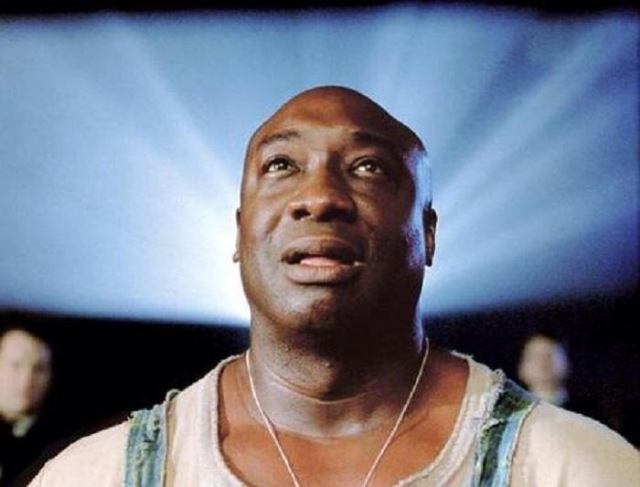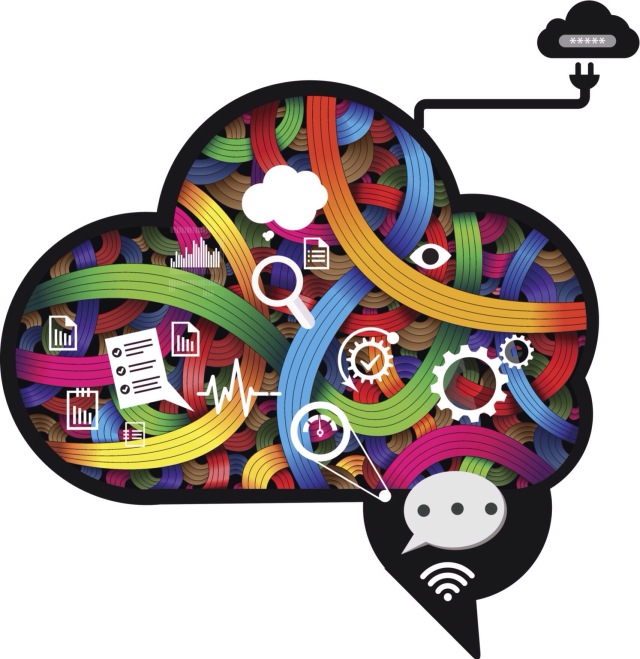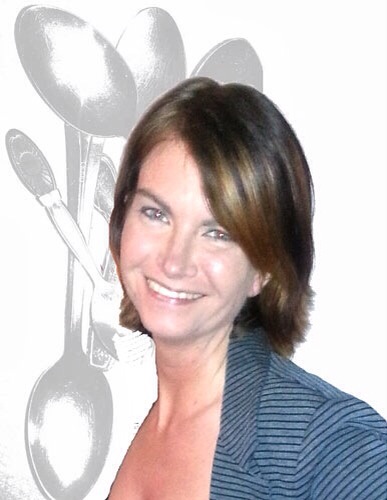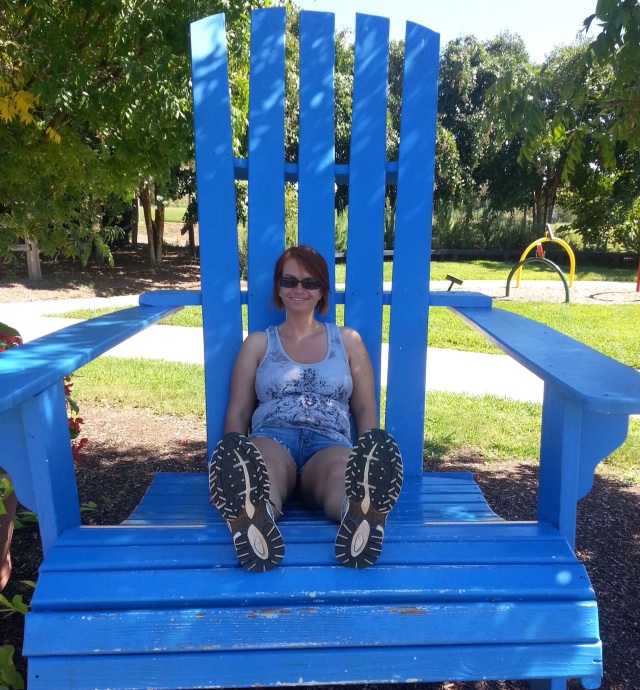
Keeping count like the Doctor
I finally went to see a new rheumatologist yesterday. She was recommended to me by my primary care doctor and a friend. I went in, hopeful that I would find this doctor to be respectful and one who would listen to my opinion and experience. I left feeling as though I had been burned by the fire of a thousand side eyes. On the one hand, she was quiet and let me speak. On the other hand, hearing what I had to say is different from listening, and it’s on a completely different plane from believing.
Doctor Speak

How doctor’s look during a fibro appointment
Generally doctors don’t come right out and say exactly what they’re thinking. Well-trained in the art of throwing shade, they tend to belittle you in such a way that it sounds like they’re trying to help you. We Spoonies are experts in doctor-speak. We’ve heard, it’s all in your head, you hysterical (wo)man, in many dialects: “How is your stress level?”; “Do you have a history of depression?”; “Oftentimes it’s actually depression that causes pain.” Other common conversations involve indirect, or even aggressive and direct, accusation of drug dependency. My “favorite” so far, as a woman who has gained weight because of medication, an inability to regularly exercise, a medically confirmed genetic tendency to easily gain weight, especially when medication is involved, and an availability of Girl Scout cookies, is the insinuation that I’m just a lazy, fat load who would feel better if I just exercised and lost weight. Yesterday, as the doctor smiled derisively and subtly rolled her eyes, I was essentially called a drug-addicted fat load who just needs to get off her lazy ass and exercise.
“We want to go ahead and get you off the pain medication so that your body is no longer dependent on it.”
You’re addicted to opiod medication.
“Do you exercise?”
Do you exercise? Because you really don’t look like it.
“I can’t exercise too much, but I have two little girls, so it’s not like I’m sitting around.”
“Yeah, you really need to exercise. You could do yoga, tai chi, walking, water aerobics, you could just walk in the pool.”
Doing all the things you do as a stay at home mom aren’t good enough. And with all these options available to you, you really have no excuse not to exercise, you lazy woman.
“It’s actually been difficult for me to get into a class that works out. I was enrolled in a yoga class, but it was cancelled because of lack of enrollment. And if you go private, it’s really expensive. That’s why I’m working with someone at George Mason, in the therapeutic recreation program, to develop an exercise program for people with chronic pain. It’s frustrating for me because, before I got sick, I was doing aerobics and strength training regularly.”
“Really?”
I’m going to be stone-faced, smiling, and slightly roll my eyes because Excuses excuses blah blah blah excuses. Your exercise program is an adorable way of avoiding real exercise, so I’m going to keep nodding and giving you side eye. Wait, what? You used to exercise? You could have fooled me.
“Have you tried Topomax? It’s like Lyrica, but it helps you lose weight by making some foods taste unpleasant.”
Let’s try this other drug because you really need to stop eating and lose some weight.
Hostile Intentions
So why are doctors so hostile toward people who live with chronic pain? I believe it comes from prejudice, ignorant assumptions, misinformation, and lack of education.
1) Prejudice
It’s been pretty well established in research that general attitudes toward overweight persons are negative. These attitudes do not suddenly cease to exist at the doctor’s office door. Researchers at Johns Hopkins found that physicians were less likely to be empathetic toward and build rapport with overweight patients.
“Obese patients may be particularly vulnerable to poorer physician-patient communications, Gudzune says, because studies show that physicians may hold negative attitudes toward these patients. Some physicians have less respect for their obese patients, which may come across during patient encounters.”
Anecdotally, I, and plenty of people I have talked with over the years, have experienced such negative attitudes from doctors over the years. No matter the complaint, the recommendation is always the same: You need to lose weight. Granted, sometimes it’s perfectly within reason for the doctor to give such advice. But all too often, the doctor walks in and decides that weight is the problem, before even hearing the complaint. I remember one visit I made several years ago because both of my knees had suddenly begun hurting. The older, male doctor told me that they’d feel better if I just lost some weight. Granted, I was a little overweight at the time, but not so much that my knees should have suddenly given me the level of pain I was experiencing.
2) Ignorant assumptions
Coupled with number 1, doctors make assumptions about how a person lives their life, simply by looking at their weight. All they see is an overweight person. They don’t care how you came to be that way, nor your daily routine. They don’t see you hardly sitting down in a day because you’re tromping up and down stairs with baskets of laundry, cleaning up toys, doing the dishes, shopping for groceries and lugging all the heavy bags inside, walking kids to the bus stop, chasing them around playgrounds, and helping them ride their bikes, who generally has healthy snacks of fruit and Greek yogurt. All they see is a fat person who is too lazy to join a Crossfit box and eats junk all the time.
Ignorant assumptions are not confined to lifestyles. They are also made about individuals who take heavy duty pain meds just to function like a “normal” human being. It is assumed that if a patient takes narcotics, particularly opioids, they will become addicted, if they are not already. People who live in chronic pain tend to be afraid to ask for pain medication because of how doctors may view the request. According to Social Work Today, “‘Living with chronic pain is exhausting,’ Barrett says. ‘The undertreatment of chronic pain can lead patients to appear to be engaging in drug-seeking behavior. I have had clients whose doctors have not taken their physical pain seriously.'” The article goes on to cite a study from 2011, which found, “For patients with chronic noncancer pain, opioid prescription remains highly controversial, and even in the wake of prescription guidelines and educational efforts, primary care physicians continue to practice under misconceptions about appropriate opioid use vs. addiction, leading to patient undertreatment (Wolfert, Gilson, Dahl, & Cleary, 2010; Hooten & Bruce, 2011).”
3) Misinformation and lack of education
I’ve combined that last two because they go hand in hand. Plenty of doctors still do not believe in the validity of fibromyalgia. I’d say it’s pretty difficult to effectively manage the pain of an “imaginary” medical condition. In addition, many doctors do not have the training to administer effective pain management. This lack of training not only includes the inability to prescribe an effective dosage, it also makes them fear that their patient will become addicted, should they receive narcotic pain medication. According to a 2003 study published in Pain Research & Management: the Journal of the Candian Pain Society, poor pain management is something that doctors themselves acknowledge. In a survey of 100 Canadian physicians, researchers found,
“For moderate to severe chronic noncancer pain, opioids were the first-line treatment of only 32% of physicians (16% preferred codeine, 16% major opioids) because a significant number preferred either non-steroidal anti-inflammatory drugs (29%) or acetaminophen (16%). Thirty-five per cent of GPs and 23% of PCs would never use opioids for noncancer pain, even when described as severe. Chronic pain was deemed by 68% of physicians to be inadequately managed. Almost 60% thought that pain management could be enhanced by improved physician education. Identified barriers to opioid use included addiction potential (37%) and side effects (25%).”
The study goes on to conclude that, “Even among physicians experienced in chronic pain treatment, there is a reluctance to use opioids for severe nonmalignant pain. One-half of the survey participants believed that there was a need for improved physician education in pain management, including the use of opioids.”
Why this fear of addiction? Where did it come from? According to the same, above-referenced article from Social Work Today, it stems from a coincidental rise in prescription drug abuse at the same time doctors began prescribing opioids for non-cancerous chronic pain.
“As a result of media attention on increasing rates of prescription pain medication abuse, those with chronic pain who had previously found improved functioning, psychological health, and quality of life with appropriate opioid use began to face increased difficulties receiving effective treatment.”
This leaves chronic pain patients to, effectively, sing for their supper. Patients must prove that they really are in enough pain to require such heavy duty medication and overcome any biases and trepidation the doctor may have about prescribing it. It also gives patients the onerous task of somehow allaying any suspicions that you are simply engaging in drug-seeking behavior to feed an addiction. I have done this song and dance myself. I put it off for a long time because I didn’t want to be judged as an addict. Once I was prescribed Percoset for breakthrough pain, it took me over 3 months to go through 30 tabs, (many of them taken so I could walk at Disney.) The new rheumatologist wasn’t buying it, though, and refused to give me a new prescription.
Now what do I do?
My first instinct is to turn tail and run hobble. Although there were some positives of the encounter, I am still left feeling dirty all over. It’s pretty clear that she doesn’t take me seriously, nor does she believe that I won’t abuse medication. Her hostility toward me was reflected in the comment she made to me while I was having difficulty locating a word because of fibro fog: “This is why most patients write things down.” Not one to take an insult lying down, I fired back that I couldn’t have done because it was a question about something she had brought up during the appointment.
If I were to leave and go elsewhere, again, I know that I would risk the appearance of drug-seeking behavior. You didn’t give me the drugs I wanted, ergo, fuck you and on to the next dispenser of DEA controlled substances. I also realize that her attitude is pervasive, so leaving probably wouldn’t do any good. I do hope that future encounters will allow her to get to know me, for me to know her, and a better doctor/patient relationship to form. Until then, I’ll just need to stay informed, stay strong, and get my Stuart Smalley on.























